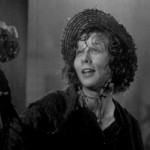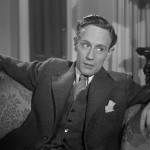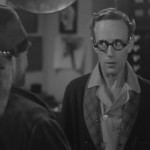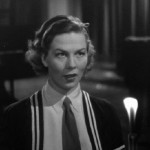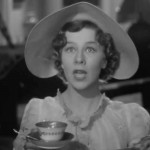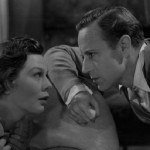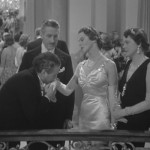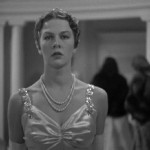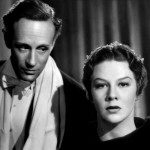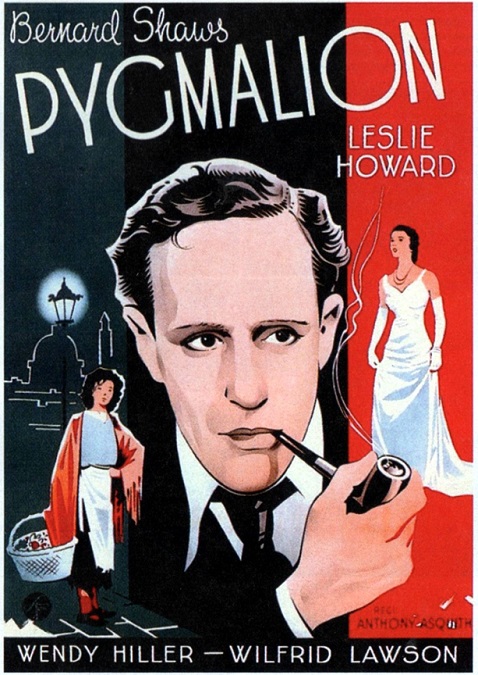
Pygmalion – 1938
You know, I didn’t particularly care for this movie, as much as I would have liked to. Maybe I’ve been spoiled by My Fair Lady, the 1964 musical, but Pygmalion seemed far too hurried to do the wonderful story justice. But I don’t want this review to be a big complaint about how the popular Broadway show was far superior in just about every aspect, even though it was. Instead, I’ll try to focus on Pygmalion for its own merits or lack thereof.
The movie starred Wendy Hiller as Eliza Doolittle, a common, poor flower girl in London who has a chance encounter with an aristocrat who is a master of phonetics, Professor Henry Higgins, played by Leslie Howard. Higgins publicly humiliates and berates the girl for her uncouth Cockney accent and boasts that he could teach her to speak more genteel so well that he could pass her off as a proper lady.
Eliza gets the idea to go to the Professor’s house and hire him to teach her to speak properly in order to get a job which might lift her out of her extreme poverty. Staying with Higgins is a fellow phonetics scholar, Colonel Pickering, played by Scott Sunderland. While Higgins continues to treat Eliza like a dirty commoner, Pickering treats her with kindness and gentleness. Higgins decides to make good on his boast and agrees to teach the girl.
The performances from the actors were good enough, especially Hiller. However, I got the general feeling that the entire story was being rushed. Scenes and nuances that I felt could have been played slower for things like character development or plot believability were delivered quickly. At times the dialogue seemed to be rapid-fire or throw-away. Sometimes, the actors were delivering their lines so fast that I had a hard time understanding what they were saying.
For example, I think that the film needed to spend more time developing the relationship between Eliza and Higgins. When the end of the film arrived, I didn’t understand why Eliza would ever go back to him. The film never once portrayed him as being anything but abrupt, short-tempered, and often downright cruel to her. He treated her as a living doll that he could, at any time, tire of and discard. Had he shown her any modicum of kindness, then I could understand why she might return to him.
Also, the hardships of Eliza’s training were quickly thrown at the viewer with the use of a frantically quick montage. There was only one tiny pause in the montage that showed the terrible strain Eliza was enduring under Higgins’s strict tutelage. The film just made her forced training seem far too easy for her. She was even described as a quick student that could learn anything. And there was absolutely no portrayal of any strain to Higgins, himself.
Yet another example of how rushed the movie felt is in how the character of Alfred Doolittle, Eliza’s penniless drunk of a father, played by Wilfrid Lawson, was portrayed. He shows up for his first scene with Higgins, in which he extorts 5 pounds from him. Then he shows up at the end, dressed as a man of wealth. Barely two or three sentences quickly explains where his money came from, and then he is gone again. Never-mind the fact that the film never explained how he knew where Henry’s mother lived, or why he went to her house looking for Henry, or for that matter, why he would invite Colonel Pickering, a virtual stranger, to his impending wedding. And while I’m on the subject, why would Pickering have accepted the invitation?
One interesting difference between George Bernard Shaw’s original script and this film was the character of Aristid Karpathy, played by Esme Percy. The pompous phonetics expert, who was once Higgin’s pompous student, was written specifically for the film, though he was only mentioned in the play. He was neither understated nor over the top. I liked his character as an interesting plot device and comic relief at the same time.
But all that being said about the film, which would undoubtedly be credited to the directors, Anthony Asquith and Leslie Howard, I have to give special nod to Shaw’s wonderful and captivating script. The things that the characters said were always meaningful and delivered in an interesting way. Shaw sure had a talent for clever quips and witty dialogue. However, I learned something interesting about Shaw, himself, that made me lose a little respect for him, as a person. Apparently, when he received an Academy Award for his part in the writing the screenplay, he was quoted as saying, “It’s an insult for them to offer me any honor, as if they had never heard of me before – and it’s very likely they never have. They might as well send some honor to George for being King of England.” What an egotistical jerk!
